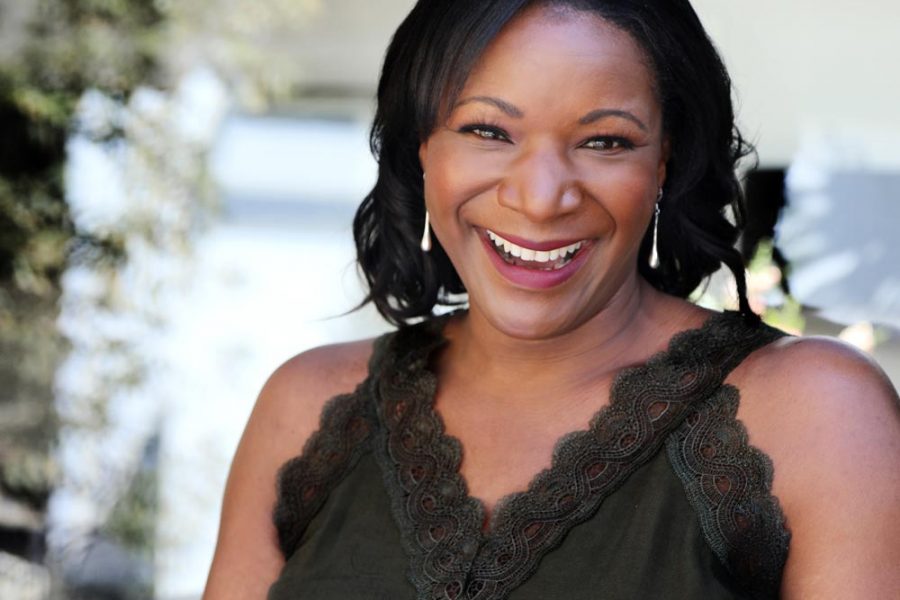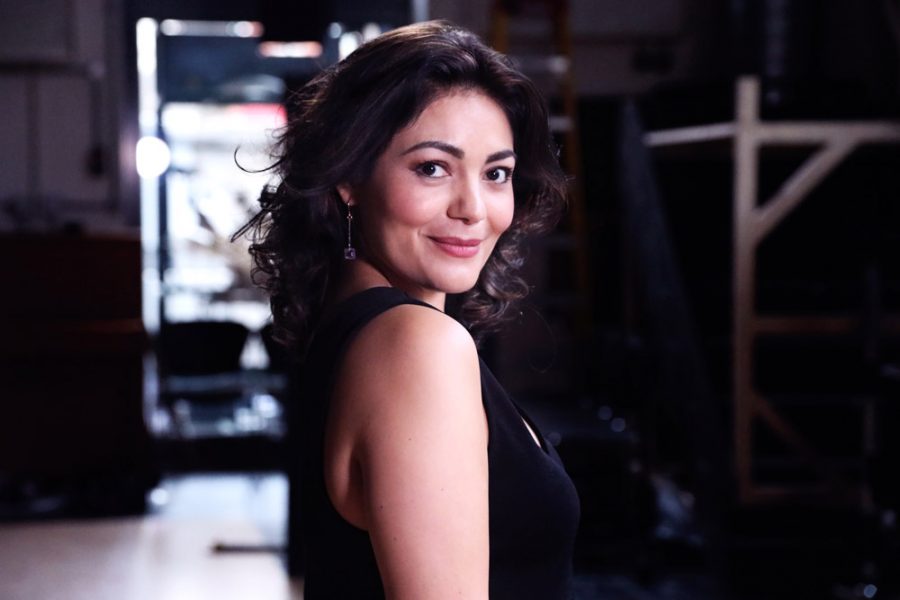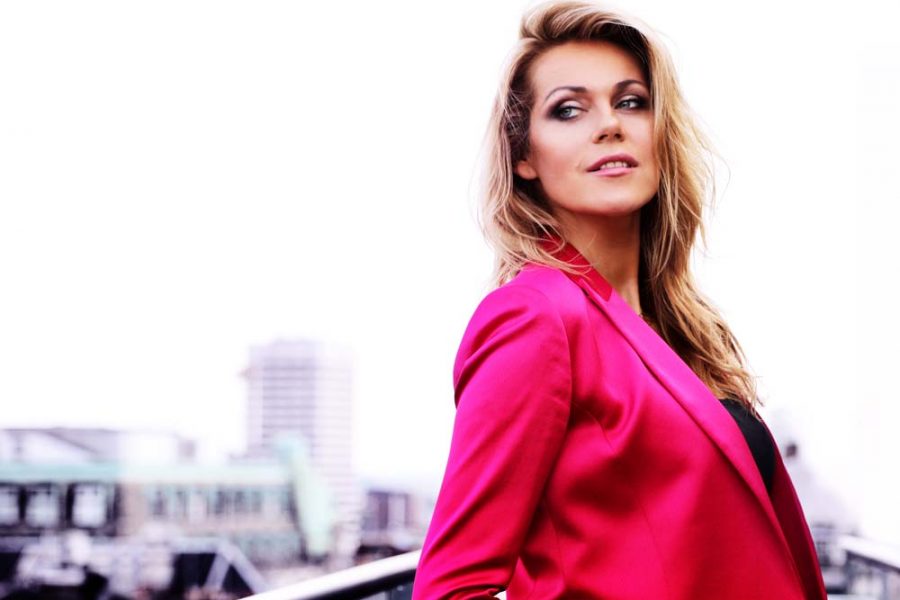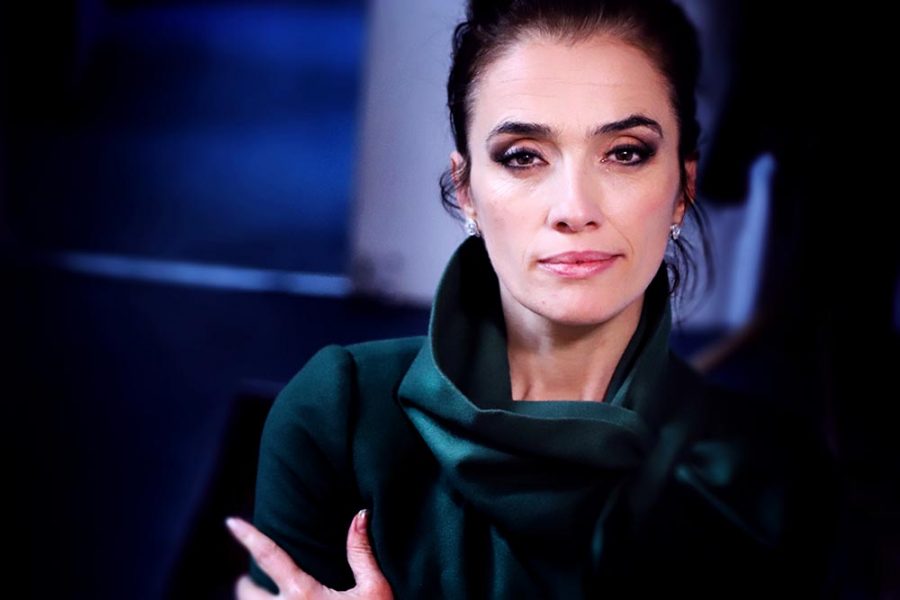Liberty Belle: Sandra Oman

September 2015
Words by
Emer Nestor
Photos by
Frances Marshall
Soprano Sandra Oman holds a prominent place within the fabric of Irish opera. A former graduate of the DIT Conservatory of Music and Drama, and recipient of the Ely O’Carroll Gold Medal, Oman has performed extensively in opera and concert in Ireland, UK, USA, Italy, Faroe Islands, Latvia and Poland.
She has won major awards at national festivals such as Feis Ceoil, Ballymena Music Festival, Sligo Feis Ceoil and the Fr Matthew Feis in Dublin. In recognition of her remarkable contribution to opera in Ireland, Oman was bestowed the Margaret Burke Sheridan Memorial Award in 2004. She has sung with numerous international companies such as Opera Holland Park, Longborough Festival Opera, Opera Project, Lyric Opera, Co-Opera, Opera 2005, Opera Interludes, and Opera in the Open. A favourite in the classical-crossover scene, the Irish Soprano is well loved for her collaborations with The Celtic Tenors, the South African Ballet Company, and Red Hurley. Over the last five years she has toured Ireland with the hugely successful Mario Lanza tribute ‘The Loveliest Night of the Year’
In our interview with the charming soprano, she reminisces about her musical childhood in Dublin’s ‘the Liberties’, her first big break, working with her husband, life onstage, and the forthcoming release of her debut album, Liberty.
I can't ever remember a time when I wasn’t singing as a child. Apparently, I was singing Tom Jones's ‘Delilah’ for anyone who came in to the house from the age of 3."

What were the musical sounds of your childhood growing up in the Liberties?
I grew up in a household that was quite simply filled with music. The soundtrack of my childhood ran from Elvis Presley and Tom Jones, to Beniamino Gigli and Mario Lanza, to Paul Robeson and Arthur Tracy [‘the Street Singer’]. My first records were Shirley Temple records…I would sit and listen to them for hours. My mother loved musicals so I was hugely familiar with the Rodgers and Hammerstein greats: Oklahoma, Carousel, The King and I, On Moonlight Bay etc…. My grandfather, Robert, had a beautiful voice and would sing such classics as ‘Because’ and ‘Bless this House’. I also remember my Dad singing songs like ‘Bonnie Mary of Argyle’. My mother also played violin, but not professionally. So you could say that I was pretty much surrounded by music.
How did your love affair with Classical music evolve?
I can’t ever remember a time when I wasn’t singing as a child. Apparently, I was singing Tom Jones’s ‘Delilah’ for anyone who came in to the house from the age of 3. My parents always liked opera and my mother attended a performance of La traviata when I was in utero. I remember seeing Luciano Pavarotti on TV with his white handkerchief and being quite fascinated by him. As a teenager I saw Zeffirelli’s La traviata with Placido Domingo, and Carmen (starring Domingo and Julia Migenes) in the cinema — I was hooked. I started singing lessons in the College of Music, Chatham Row (now the DIT Conservatory of Music and Drama) at the age of 15, and began my Arie antiche…it escalated from there.
Were you enthralled by the voices of any sopranos in particular at this time?
I remember Kiri Te Kanawa was very much the woman of the moment in the late 1980s and I had several of her albums. Indeed that’s how I was introduced to several operatic standards. I also remember her rendering of ‘Ruhe Sanft’ [Zaide], which was quite breathtaking. My husband introduced me to the legendary Renata Tebaldi and her magnificent recordings of La bohème and Madama Butterfly…and of course, the superb Maria Callas. The astounding video of her performance in La Scala of Tosca (Act 2) with Tito Gobbi is surely a masterclass if ever there was one.
As a student of the DIT Conservatory of Music, were you encouraged/inspired to follow a career in music?
I certainly had wonderful teachers who assisted and supported me in every way possible. My singing teacher was Edith Forrest, with Alison Young as my répétiteur. Of course, there was always the iconic principal of the College at the time, Dr. Veronica Dunne, whose very career was a shining example to all. I performed in her production of Albert Herring at the Gaiety Theatre, which certainly compounded the desire in me to be onstage in opera.
You went on to read Italian and French at UCD — how beneficial has this proven to be in your opera career and would you recommend such studies to aspiring opera singers?
In a way, it has been vital. It was no coincidence that these are the languages and subjects that I studied at University level. I did my degree by night, after I had started singing lessons and made my decision to pursue music professionally. As a lyric soprano practically all of the repertory that I sing is in Italian and, occasionally, French. It is extremely difficult to interpret a role if you do not know precisely what you are trying to say, feel, etc…. In a sense, you’ve got to think in the language as if it’s your mother tongue to interpret the music with honesty…to find the truth behind the words or lyrics. Then of course there’s the whole area of pronunciation too.
When did you receive your first ‘big break’ in the performing world and how difficult was the journey to that point?
My first professional operatic role was with a small company called ‘Young Dublin Opera’ back in 1991. It’s incredible looking back at the cast which included several singers that would go on to conquer the operatic world. It was Così fan tutte, or ‘The School for Lovers’ as it was called (because we sang in English translation), and it was performed in the Edmund Burke Theatre of Trinity College. The line up was as follows: Majella Cullagh (Despina), Yours truly (Dorabella), Anna Jennings (Fiordiligi), Declan Kelly (Ferrando), Paul McNamara (Guglielmo), and Martin Higgins (Don Alfonso). We had such a wonderful time, and we’ve remained in contact since as good friends.

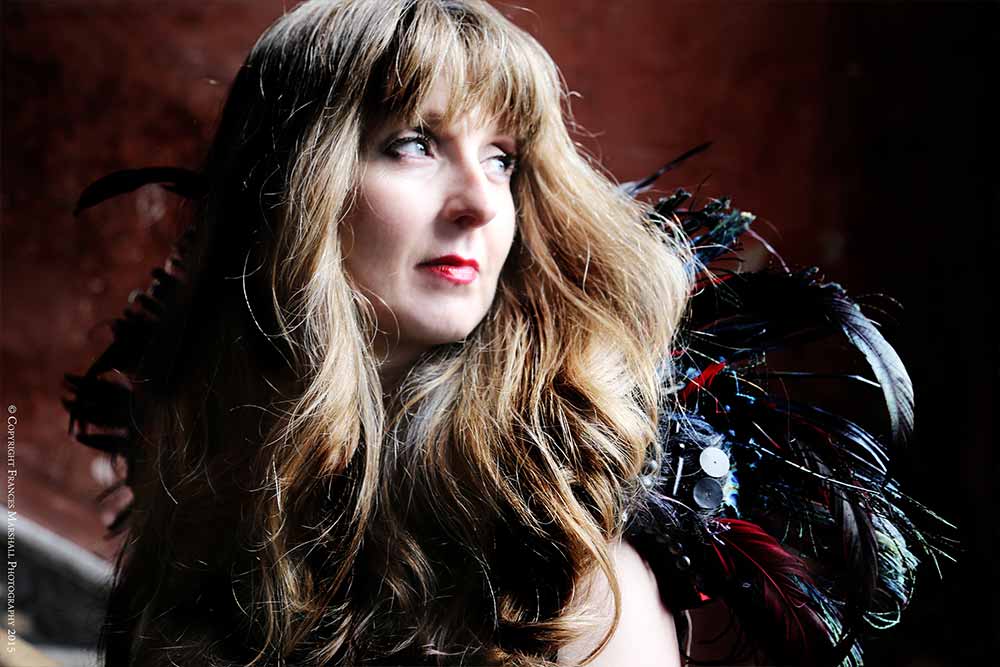


I forget all my worries and cares when I'm out there doing my thing! It's unquestionably the best job in the world."

What do you love most about being onstage??
I love acting, I love interpreting a role, and I love singing — all my great passions. I forget all my worries and cares when I’m out there doing my thing! It’s unquestionably the best job in the world.
To date, you have embraced a diverse portfolio of roles — what kind of operatic character are you most drawn to?
I have indeed. I’ve sung over 30 roles at this stage. In the beginning, I sang all the comprimario roles, as it were — the Kate Pinkertons, Anna (Nabucco), Lady in Waiting (Macbeth), and Clotilde (Norma). These roles are fantastic for honing your vocal craft on stage, as you usually only have 6 or 8 solo lines at most to make your vocal impact.
Later, I went on to interpret many of the soubrette roles, all the ‘-inas’ if you like: Despina (Così fan tutte), Adina (L’elisir d’amore), Susannna (Le nozze di Figaro) — roles which require comedic ability. This can be challenging as there is nothing more difficult than comedy. As the fella says, “Drama is easy; Comedy is hard”! But I’ve enjoyed that challenge very much over the years and felt great satisfaction when it all seemed to come together.
Finally, I’ve been lucky enough to interpret some of the great lyric soprano roles, like Liu (Turandot), Gilda (Rigoletto), Mimì and Musetta (La bohème), and Micaëla (Carmen). The full gamut of female emotion can be found at the heart of these “little women”, as Puccini called his heroines. It is extraordinarily satisfying to come off stage, having literally poured your heart out through these roles — it feels fantastic to leave it all out there on the stage!!!
Do you have a favourite oratorio?
Mendelssohn’s Elijah is so wonderfully jam-packed with the most luscious melodies in the oratorio canon. However, Messiah will always be close to my heart. I performed it many times as a young singer, and it marked the start of many Christmases for me.
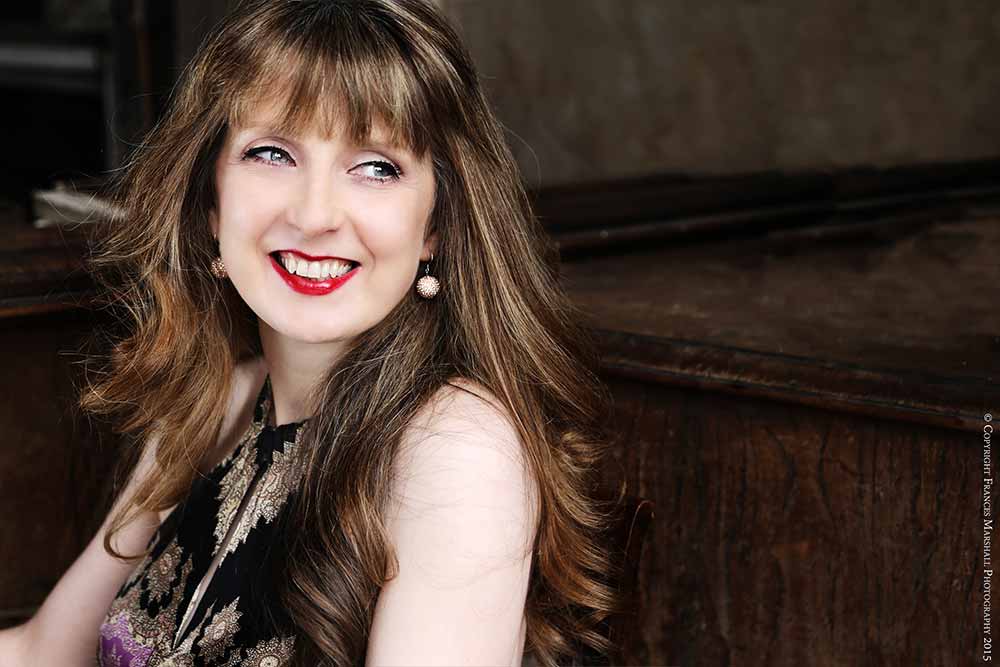


As a soprano you have been involved in classical crossover collaborations; many classical ‘purists’ consider such endeavours as a form of ‘selling out’ — what are your thoughts on this?
Yes, I’ve been lucky enough to perform here in Ireland and abroad with the very successful tenor group, The Celtic Tenors. I’ve also performed with the South African Ballet Company at the O2 in a celebration of the music of the great rock band, Queen. Finally, I have had the privilege of performing quite a bit with the legendary Irish singer, Red Hurley, in his inspirational hit concert ‘How Great Thou Art’. It may be said that opera has reached a much wider audience as a result of so-called crossover material and collaborations. I simply don’t understand musical snobbery. I very much have a “live and let live” mentality. Quite frankly, if the likes of Placido Domingo and Luciano Pavarotti embraced crossover projects (Pavarotti in his collaborations with Celine Dion; Domingo also), what further argument can be offered!
How did you meet Conor Farren — what’s it like having your husband as your singing teacher?
I met Conor through a mutual friend, a singer that I met on a Kodály course in Cheltenham. She and Conor shared a singing teacher. We met at her birthday party and struck up a conversation. At the time Dmitri Hvorostovsky was about to perform in Ireland and Conor had two tickets for his performance. So one of our very first dates was to hear Hvorostovsky at the National Concert Hall.
It is both a blessing, and a curse(!), having your husband as your vocal coach! But seriously, it is such a huge blessing. From day one Conor’s commonsense and insightful approach to vocal technique basically changed the course of my singing career. His emphasis on the importance of the word and finding the truth behind the lyric/libretto, together with his safe, kind, technical approach has helped me to maintain good vocal health and longevity…touch wood! He obviously knows my voice inside out at this stage and knows what works best for me. I can’t recommend his talent in the field of vocal instruction enough.
Does your daughter share your love for music and would you encourage her to follow in your footsteps?
She certainly loves singing and perhaps she has inherited the performing gene! She sang in a performance of Humperdinck‘s Hansel and Gretel at Opera in the Open recently and has a nice little voice. It’s gas…I have to learn some mad repertory sometimes and obviously she has to listen to Mammy rehearsing it at home. But the funny thing is that she picks it up so quickly and goes around singing it, even if it is 21st-century music. I was singing Ravel’s ‘Concepcion’ last week and it took me quite a while to get to grips with this challenging music, but I could hear Emily running around singing phrases from it. Anyway, she plays violin and enjoys it. Would I encourage it professionally? Only if that’s what she wishes to do. It’s a difficult path, obviously hugely rewarding, but difficult nonetheless. Naturally I will support whatever she wishes to pursue in life.
Can an early-career opera singer make a viable career in Ireland, or is it still necessary to develop your craft across the seas?
There are certainly much more opportunities within Ireland nowadays in terms of study and institutions — both the DIT Conservatory of Music and the Royal Irish Academy of Music provide degree courses at Bachelor, Masters, and Doctoral level. This was unheard of when I was studying. So in that respect, things have dramatically improved in Ireland. However, we still do not have a full-time opera company, which makes life nigh on impossible for the emerging operatic professional. I was appalled at the closure of Opera Ireland several years ago — such an amazing opportunity for young professionals to learn their craft in a real-life working situation. It afforded established Irish artists the opportunity to come home and sing in front of their own families, friends, and fans. To be honest, it’s virtually impossible to pursue an operatic career without going abroad. I have been extremely lucky in working so much here in Ireland, particularly as I am very much a “home bird”.
The opera scene is Ireland is currently undergoing a sense of metamorphosis with an emerging plethora of new talent — what are your thoughts on this, and how do you rate attitudes towards opera in this country when compared to that of the UK and Europe in general?
The talent emerging from Ireland right now is stunning and we must be so proud of our artists abroad — Tara Erraught and Paula Murrihy are among too many of the hugely successful artists to list here. Unfortunately, opera is not prioritized in this country the way it is, say, in Germany. I once heard the operatic situation across Europe described thus: the further one travels east across Europe, the less and less State assistance or sponsorship is provided, implying that the likes of Germany, Switzerland, Austria, Sweden, Denmark, and Norway all see opera as a vital, essential, living art form to be nurture; but if we move towards the Atlantic, the other European countries simply aren’t supporting opera in the same way. Attending the opera, and supporting the opera is not seen as “unusual” in Central/Eastern Europe. It is considered commonplace and part of social existence, as it should be.
Tell us about your involvement in ‘Opera in the Open’.
I have been lucky enough to be involved with the wonderful concept that is Opera in the Open for the last 13 years. Provided by Dublin City Council every August as a free event for the public, OITO produces and performs an opera every Thursday throughout the month of August. This year in particular the five operas presented were all from the French repertoire, as this year they were supported in their work by the French Embassy. Within the framework of one hour, we present an opera…opera highlights if you like. Occasionally, we perform the opera in its entirety, as in the case of Ravel’s L’heure espagnole. We sing to crowds of up to 1,500, which is quite astonishing. I’m very proud to have had such a good association with this company.
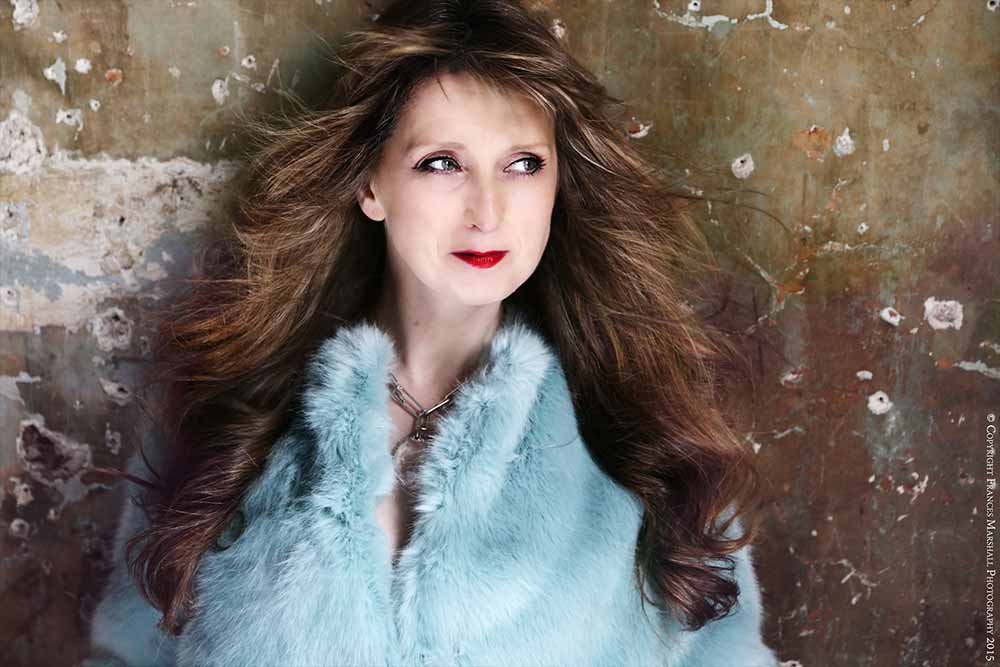

This September sees the launch of your first solo album, Liberty — why have you waited until now to do this, and what kind of tracks have you selected?
To put it simply, the time was right! In the last year, I was performing at many high profile performances with well-established artists, who have all released numerous CDs available for purchase after the performances. On several occasions I was approached by members of the audience enquiring about the purchase of my album. This provided the impetus to put the wheels in motion and record my debut album. More than that though, I wanted Emily to have something tangible, so that when she hopefully grows up to be an old lady, she can listen to, and say to her children and grandchildren: “That was my Mammy”.
When choosing the title for my album, I felt I had but one choice — ‘Liberty’. I was born and bred in the heart of one of Dublin’s oldest districts, ‘The Liberties’ — it is who I am at heart, and I still feel a strong gravitational pull to this wonderful, colourful part of the city. The word ‘Liberty’ evokes freedom of expression and choice, the ability to fly beyond one’s restrictions and boundaries and follow one’s dreams. It denotes the freedom I felt in choosing to record songs and arias that I am most drawn to and love — pieces that hark back to my childhood love of Classic Cinema.
Tracks featured will range from well-loved operatic standards to iconic Silver Screen melodies: Puccini’s beloved ‘O mio babbino caro’ (in Merchant Ivory’s A Room with a View); Ennio Morricone’s magical theme from Cinema Paradiso (Se); ‘Parla più piano’ from The Godfather); ‘Habanera’ (as featured in the movie of Carmenstarring Placido Domingo); ‘J’attendrai’ (Les Parapluies de Cherbourg); ‘La vie en rose’; ‘Parlami di me’ (La Dolce Vita); ‘I dreamt I dwellt in marble halls’; ‘We’ll gather lilacs’; ‘If I were the only girl in the world/Some day I’ll find you/I’ll see you again’ (Noel Coward Medley); ‘J’oublie’ (Oblivion); ‘Les Chemins de L’Amour’; and ‘Marietta’s Lied’ (Die tote Stadt).
Kent-born pianist and arranger David Wray has written new arrangements of these well-loved pieces for me. An outstanding ensemble of Ireland’s finest virtuosi provide the instrumental ensemble, resulting in an intimate and reflective sound world. They include David Wray (piano), Katie O’Connor (violin), Gerald Peregrine (cello), Joe Csibi (double bass), and David McCune (percussion).
The album will be launched at the National Concert Hall, Dublin on 23rd September at 8 p.m., and I am truly blessed insofar as some of my best pals in the business are very kindly appearing with me. The starry line-up comprises Bass John Molloy, Tenors Owen Gilhooly and Mark Duff, and Baritone Simon Morgan.
Sandra’s album will be available to buy at Tower Records, The Music Box in the National Concert Hall, Dublin, iTunes, and www.sandraoman.ie
All images displayed in this article are subject to copyright.
Share this article


